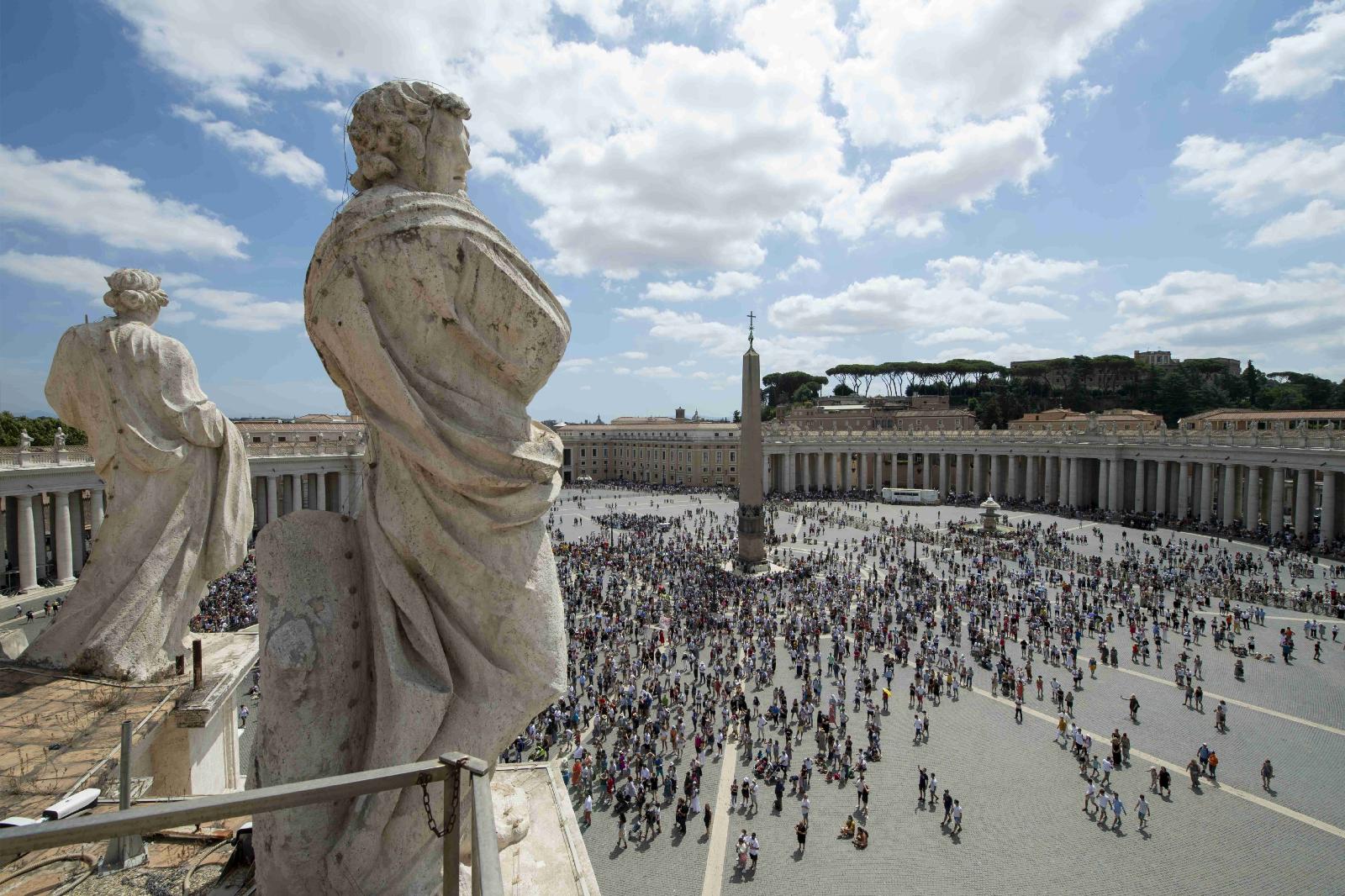Today’s readings have much to say about the mysterious working of grace in our lives, rendering us receptive and responsive to God’s courteous and continuous call, which began at our birth, was made explicit at our baptism, and will be brought to fulfilment when we are called from this life to the happiness of heaven, for which we were created. The readings shows God’s grace at work in the lives of three very different individuals, each called to fulfil a specific task that would change not only their own lives but, in due course, the lives of us all.
Isaiah, the young prophet, is summoned to bring back Israel to the path of life. Paul, the zealous Pharisee and former persecutor of Christians, is called to preach the gospel to the wide world beyond his native Judaism. And Peter, the impulsive, fearful fisherman, is invited to switch from catching fish for the table, to catching people for God.
Despite their differences in almost every other way, what these individuals have in common is their profound sense of unworthiness. Isaiah speaks of himself as “a man of unclean lips”; Paul, given his past hostility to Christ, feels acutely undeserving of the call: “I hardly deserve the name apostle”; and Peter, in one of the most affecting phrases uttered anywhere in the New Testament, shrinks in shame from his Master: “Leave me, Lord, I am a sinful man”.
But, in the face of their felt inadequacy, God offers the same reassurance to all three: “I will be with you.” They’re called to rely, in other words, not on themselves, but on Him. “Your sin is forgiven”, Isaiah is told. Paul is given to realise, “By the grace of God, I am what I am.” And in answer to Peter’s paralysing self-doubt, Jesus tells him simply and directly: “Do not be afraid.”
As with these very different individuals, so with us: in the well- known words of Cardinal Newman, God has created me to do Him some definite service; He has committed some work to me which He has not committed to another. I have my mission; I may never know it in this life, but I shall be told it in the next.
But presupposed to any specific task allotted to us, there is an even more fundamental call, a call that underlies and undergirds whatever else we do and whatever subsequent commitments we make. By calling us into existence, God called us into a relationship. To be at all, is to be in a relationship to God our creator. As Aquinas so clear-sightedly sees, our very existence is a relationship which started when God brought us into existence and was made explicit at our baptism, when we became, in our inmost selves, so completely identified with Christ, that we live with his life. As St Paul will later say, “I live, now not I, but Christ lives in me.” So our primary call is not to a work or task, not even to an apostolate, much less a career, but a relationship.
Specifically, the relationship into which we were called is friendship. God called us into existence to have our friendship, to know and love us and to be known and loved by us. In short, to have our company for all eternity. That is why he became one of us. He became our equal by sharing our human life, and by grace, he made us his equal by sharing with us his divine life, in order that we and he might live as friends. (As both Aristotle and Aquinas say, you can only be friends with your equals. For both, a friend is ‘another self’.) And that divine life, wrought in us by grace, is manifest in friendship. The friendship that is the Trinity is manifest in the love we bear one another.
One distinctive mark of genuine friendship is, of course, that we can be ourselves with our friends. God called us into existence as utterly unique, never-to-be-repeated, one-off individuals. And that means that responding to his call to friendship enables us to be our true selves, the selves God created. We all bear the same image and likeness of God, but we can body forth that likeness in our lives, becoming sharers and bearers of God’s life and love and fully ourselves, only in friendship with him and, of course, with one another.
This, then, is the calling we all share. And if we took it to heart and responded with every fibre of our being, the world would instantaneously be a different and better place. As the formidable, fiery St Catherine of Siena (1347-80) said: “When, and only when, we are what we’re called to be, then, and only then, will we set this world ablaze”.



 Loading ...
Loading ...
What do you think?
You can post as a subscriber user ...
User comments (0)